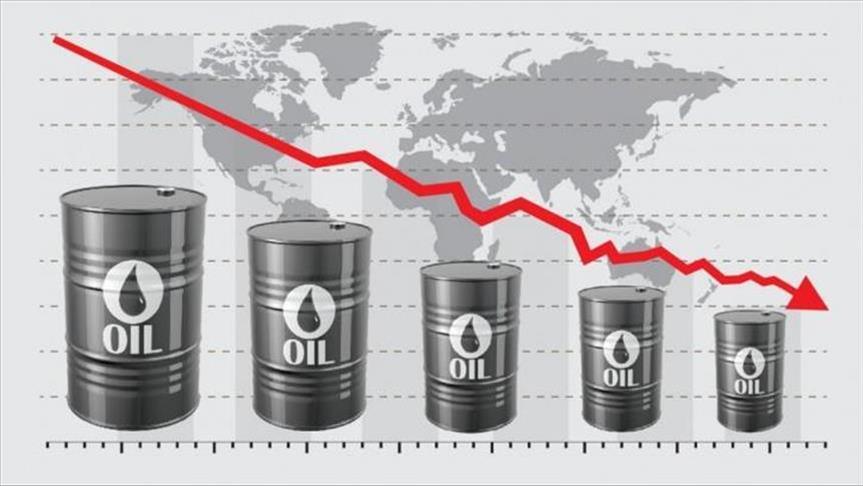Low liquidity and limited available storage pushed the price of American benchmark West Texas Intermediate (WTI) crude oil futures below zero last week, according to the country's Energy Information Administration (EIA).
Last Monday, on April 20, WTI crude oil futures traded on New York Mercantile Exchange (NYMEX) were priced in negative dollars for a barrel for the first time since trading began in 1983, according to the EIA.
WTI, on that day, traded as low as minus $40.32 per barrel, while WTI prices remained below zero for most of the trading during that day and the next.
Actors in the market that hold WTI futures contracts must, ahead of the contract expiration date, make or take physical delivery of WTI crude oil from Cushing, Oklahoma -- the heart of the country's oil pipeline where WTI is priced.
As of April 17, crude oil inventories in Cushing totaled 60 million barrels, implying that crude storage was 76% full, according to the EIA’s data.
'The extreme market events of April 20 and April 21 were driven by several factors, including the inability of traders who had purchased futures to find other market participants to sell futures contracts to,' the EIA said in a statement on Monday.
'Typically, most market participants close any futures contracts ahead of their expiration through cash settlement -- buying or selling offsetting contracts -- to avoid taking physical delivery; only about 1% of futures traded go to physical delivery,' it added.
Taking delivery of crude oil at Cushing purchased from the WTI futures market is straightforward under normal conditions. However, the normal process of physical settlement process has been affected in this case, as a result of the decline in availability of crude oil storage capacity.
'The scarcity and high cost of available crude oil storage meant several market participants were heavily incentivized to close their positions before having to physically settle their contracts, with some contract holders resorting to selling their futures contracts at negative prices, in effect, paying a counterparty to allow them to exit their positions,' the EIA explained.
Due to the novel coronavirus (COVID-19), consumption of crude oil and petroleum products has sharply declined around the world as a result of travel restrictions and the general economic slowdown
By Ovunc Kutlu
Anadolu Agency
energy@aa.com.tr


